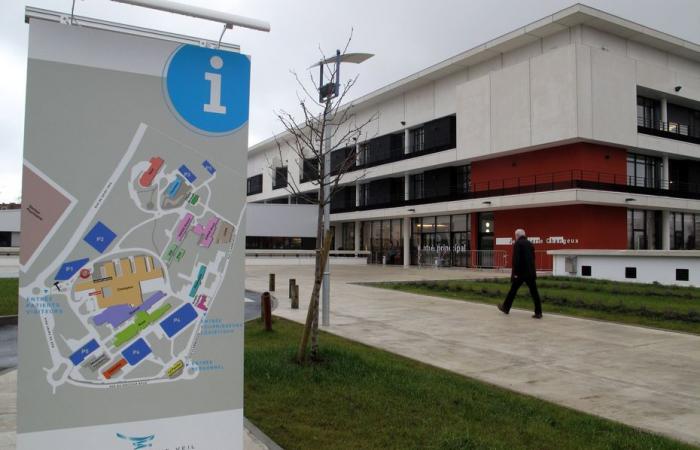
A woman from Val-d'Oise is now permanently disabled after an injection of epidural anaesthetic. Her family has filed a complaint.
Company
From daily life to major issues, discover the subjects that shape local society, such as justice, education, health and family.
France Télévisions uses your email address to send you the “Society” newsletter. You can unsubscribe at any time via the link at the bottom of this newsletter. Our privacy policy
She is in an artificial coma, 98% disabled for life. This is the dramatic fate that a 40-year-old woman, a former resident of Saint-Leu-la-Forêt in Val-d'Oise, is experiencing today after giving birth that ended tragically.
The facts date back to August 2019, when Lucy B., already a mother of two children, went to the maternity hospital closest to her home, the Simone-Veil hospital in Eaubonne. Around 2 a.m., the child not coming, she asked to have an epidural, because of her suffering.
An anesthesiologist trainee gives her the epidural in the presence of a midwife. First, as required by protocol, he injects a test dose to assess the patient's reactions, then a few minutes later the final dose. Just after the first dose, Lucy B. has convulsions and has difficulty breathing. She presses a small push button to administer more or less anesthetic depending on her pain.
The intern injected her with the final dose anyway. Lucy B.'s heart stopped. A team of on-call staff rushed to her bedside, managed to save the baby and restart the patient's heart. But for 14 minutes, Lucy B.'s brain was not irrigated, explains the family's lawyer, Maître Yacine Djellal, and the after-effects suffered by this mother today are irreversible. “The protocol was not followed, the trainee did not wait the 20 minutes necessary between the administration of the test dose and the administration of the final dose”, he says.
A panel of experts has given its opinion on the cause of the accident. When the epidural was administered, “There was a perforation of the dura mater – that is, the protective membrane that surrounds the brain and spinal cord – the fluid rose to the brain”. Perforation of the dura mater is a risk identified by anesthesiologists. “That's why there is a protocol, the administration of a test dose to see if everything is going well,” explains the lawyer who then wants to know if the practitioner then reacted well to the symptoms manifested by Lucy B. To shed light on this question, a professor, “a leading authority on anesthesia” was requested.
This professor, the lawyer reports, “then reads the operating room reports; he reads the midwife's testimonies, the operating reports and he says that the intern did not respect the sufficient time between the administration of the test dose and the administration of the final dose and this error of the intern contributed 100% to the damage suffered by Lucie B.“
Another question: why was the intern alone, without the assistance of an experienced practitioner during the intervention? “A trainee must always work under the supervision of his supervisor, he is not there to act. He is there to learn”, insists Yacine Djellal, who regrets not having been able to obtain the internship agreement from the hospital establishment, despite multiple requests.
The administrative court has been notified. In light of the report on the responsibility for the accident, the Île-de-France medical accident conciliation and compensation commission concluded that the family should be compensated by the hospital, but according to the family's lawyer, the establishment “refuses to consider itself responsible and has never offered even symbolic compensation.”
The hospital, which we asked for an interview, has not yet responded to our request.
More recently, the victim's family filed a complaint with the Pontoise public prosecutor's office. “The hospital is completely refusing to provide me with the information I am requesting. That is to say, the internship agreement, but also the intern's on-call schedule,” explains Me Yacine Djellal. This schedule would allow us to know the activity of the trainee patrician before the birth, “if he had performed dozens and dozens of hours of care“. “Maybe he was tired, maybe he was inexperienced? Either way, he didn't follow protocol.“, reiterates the family's lawyer.





